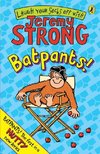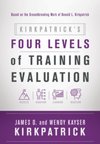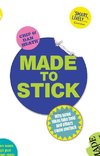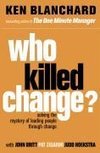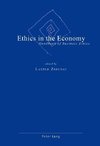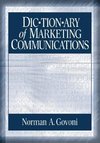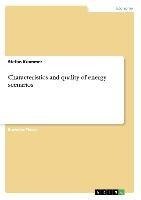
-
 Anglický jazyk
Anglický jazyk
Characteristics and quality of energy scenarios
Autor: Stefan Krammer
Bachelor Thesis from the year 2012 in the subject Business economics - Business Management, Corporate Governance, grade: 1, University of Graz, course: Angewandte Betriebswirtschaftslehre, language: English, abstract: [...] Renewable energy sources on the... Viac o knihe
Na objednávku
32.40 €
bežná cena: 36.00 €
O knihe
Bachelor Thesis from the year 2012 in the subject Business economics - Business Management, Corporate Governance, grade: 1, University of Graz, course: Angewandte Betriebswirtschaftslehre, language: English, abstract: [...] Renewable energy sources on the other hand have been the major primary energy source
before the era of the black gold. Today they amount for about 15% of the total primary energy
demand, with biomass and hydro-power having with 10% and 5% the biggest shares. All the
other renewable energy sources, as wind power, solar heat and photovoltaic, play a minor role
since they don't even cover 1% of the primary energy demand. Renewable energy sources
could solve both major problems of the energy sector, since they are carbon neutral and by
definition renewable. The drawbacks are that at the moment most renewable sources are not
competitive and need to be subsidized by governments and the technical challenge of storing
the produced energy.
It is easy to understand that the future of the energy sector is highly uncertain and that tools
that are extrapolating past trends are of no use under these circumstances. In the last years
several energy scenarios have been conducted, trying to display the major uncertainties. Not
surprisingly the results are strongly varying, leading to question of the characteristics and the
quality of scenarios. However there has been no analysis of the characteristics and quality of
energy scenarios, which is being done in this bachelor thesis.
After a short introduction of the history of scenarios in chapter 2.1, a general framework of
the scenario development process is developed in chapter 2.2 and its possible variations are
listed in chapter 2.3. The result is a scenario typology consisting of 15 variables that can be
used to examine the characteristics and the quality of scenarios. The scenario typology is then
applied at a total of 5 scenarios at chapter 2.4. The sample of scenarios was chosen to display
the broad range of different scenario developers. It consists of the DESERTEC scenario of a
charitable trust, the EU-Roadmap 2050 of a political institution, the Greenpeace [R]evolution
of an NGO, the World Energy Outlook of an intergovernmental institution and the Shell
Energy scenarios of a company dealing in the energy sector.
- Vydavateľstvo: GRIN Verlag
- Rok vydania: 2012
- Formát: Paperback
- Rozmer: 210 x 148 mm
- Jazyk: Anglický jazyk
- ISBN: 9783656325826
